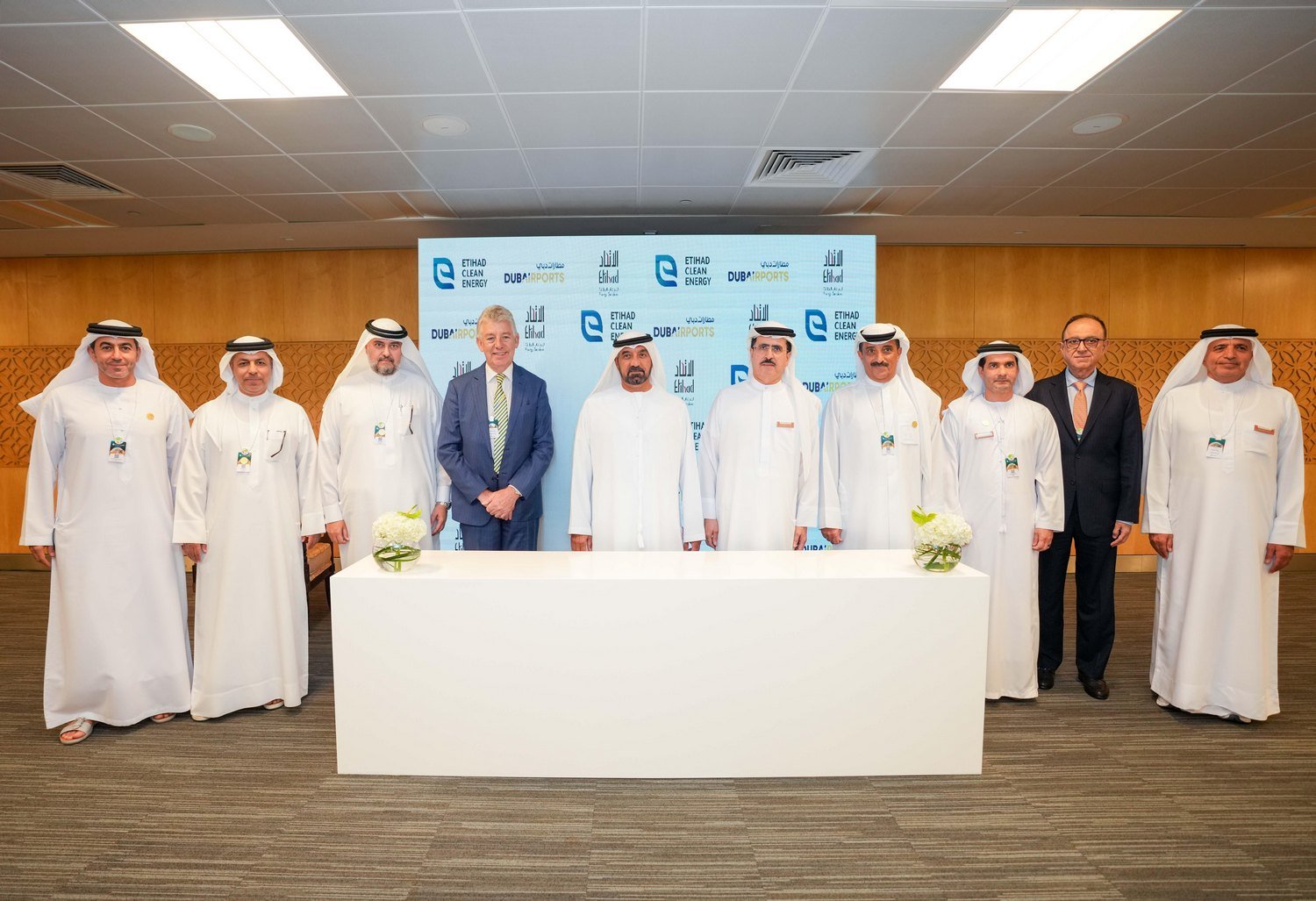Dubai Airports Expands Solar Power Infrastructure to Reduce Carbon Footprint
Dubai, United Arab Emirates – 03 October 2024: In a landmark move towards sustainable aviation, Dubai Airports has partnered with Etihad Clean Energy Development Company, a subsidiary of Dubai Electricity and Water Authority (DEWA), to initiate the world’s largest rooftop solar installation at an airport. The agreement, formalized at the World Green Economy Summit, signals Dubai Airports’ commitment to environmental stewardship and sustainable energy use, furthering the UAE’s green ambitions.
Under the patronage of His Highness Sheikh Mohammed bin Rashid Al Maktoum, the initiative was supported by notable leaders, including His Highness Sheikh Ahmed bin Saeed Al Maktoum, Chairman of Dubai Supreme Council of Energy and Dubai Airports, and His Excellency Saeed Mohammed Al Tayer, CEO of DEWA. The phased solar project, to be completed by 2026, will span Dubai International Airport (DXB) and Dubai World Central – Al Maktoum International Airport (DWC), generating a total capacity of 39 MWp from 62,904 solar panels. This clean energy system is projected to deliver an annual output of 60,346 MWh, offsetting approximately 23,000 tonnes of CO₂ each year—equivalent to removing 5,000 cars from the road or powering 3,000 homes.

His Highness Sheikh Ahmed bin Saeed Al Maktoum, Chairman of the Dubai Supreme Council of Energy, Chairman of Dubai Airports, and CEO of Emirates Airline and Group, and His Excellency Saeed Mohammed Al Tayer, Vice Chairman of the Dubai Supreme Council of Energy, Managing Director and CEO of DEWA, witness the signing of an agreement between Dubai Airports and Etihad Energy Services Company at the World Green Economy Summit, formalised by Paul Griffiths, CEO of Dubai Airports, and Dr. Waleed Alnuaimi, CEO of Etihad ESCO.
The clean energy produced by these installations will meet 6.5% of DXB’s power requirements and 20% of DWC’s, supporting Dubai Airports’ vision of sustainable, low-carbon operations. His Excellency Saeed Mohammed Al Tayer emphasized the alignment of this initiative with Dubai’s roadmap for achieving 25% of the energy mix from renewable sources by 2030 and a full transition to clean energy by 2050, anticipating the possibility of exceeding these goals ahead of schedule.
Paul Griffiths, CEO of Dubai Airports, highlighted the opportunity for significant environmental impact within the aviation sector. “Airports are substantial energy consumers, but this also positions us to drive real change,” Griffiths said. “With each kilowatt generated from renewable sources, we’re not only reducing our carbon footprint but also setting a global example for sustainable airport operations.”
Dr. Waleed Alnuaimi, CEO of Etihad ESCO, reaffirmed that this partnership is crucial to advancing Dubai’s sustainability agenda. By expanding Dubai’s solar footprint, projects like Shams Dubai showcase DEWA’s commitment to fostering an integrated, sustainable energy ecosystem across the emirate.
This solar initiative is part of Dubai Airports’ broader environmental sustainability strategy, which includes upgrading LED lighting, optimizing cooling systems, switching to biodiesel for ground vehicles, and reducing landfill waste. Solar installations at DXB’s Terminal 2 and Concourse D have already demonstrated significant reductions in energy use and emissions, underscoring the effectiveness of clean energy solutions in airport settings.
Dubai Airports continues to collaborate within the oneDXB community and partner organizations, working to create a sustainable future in alignment with Dubai’s environmental goals. This solar project sets a new benchmark in the aviation industry, emphasizing the importance of collaboration and innovation in achieving a sustainable tomorrow.
– QANTARA (c) 2024
